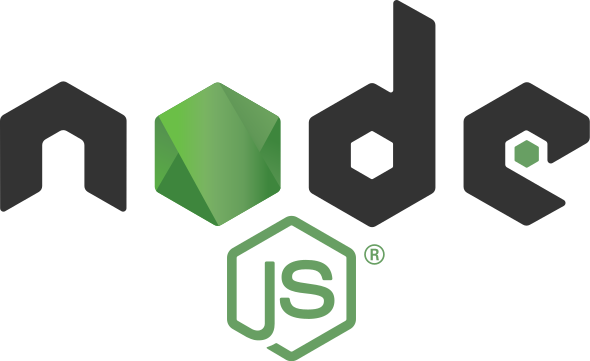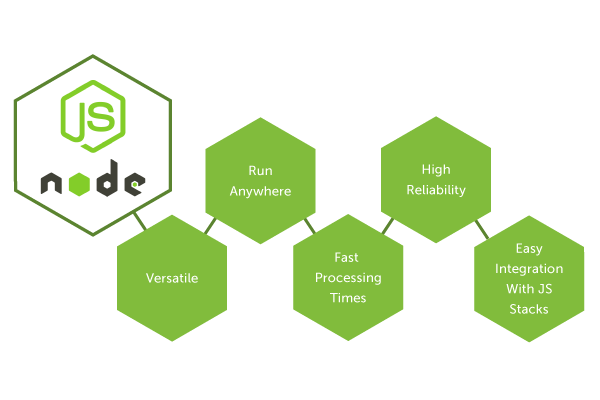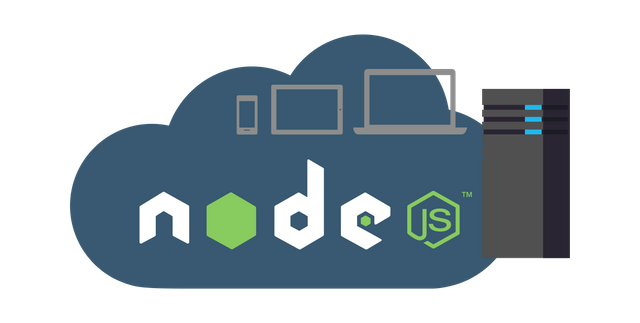Spanish Translation of Node.js (Part 8) (1073 words)

This is my 8th contribution to Node.js. I’m currently translating this project into Spanish, along with an awesome group of translators and moderators from Utopian + Da Vinci, we are doing our best to do everything correctly. If you are interested in open-source projects, I encourage you to keep reading.
Repository
https://github.com/nodejs/i18n
Project Details
Node.js is an open-source, cross-platform JavaScript run-time environment that executes JavaScript code outside of a browser. It achieves low latency and high throughput by taking a “non-blocking” approach to serving requests. Basically, Node.js can open, create, read, write, close and delete files on a server, using JavaScript. It also includes tasks that will be executed on certain servers.
I know it can be a bit confusing at first, so let me explain it to you in simpler words:
Let’s say you want to build a software to keep record of your company’s earnings. A feature where viewing your monthly earnings is updated live can be very useful. In that way, if one of your sales employees is busy, another employee could still be seeing the updates live, without reloading the page.
This has been done before using other technologies. However, Node.js is way faster and better. So, yes it’s pretty awesome for developers.

Contribution Specifications
Being such an important project, Node.js is being translated to several languages so it can reach many people around the world. As it for me, I am contributing to the Spanish language.
Translation Overview
During this contribution I finished working on url.md, this folder explains the functionalities of the URL module and the features of the URL Strings and URL Objects. I translated the modules: url.parse(urlString[, parseQueryString[, slashesDenoteHost]]) and url.resolve(from, to). As well as the functions Legacy API and WHATWG API.
Here is a sample text with its translation:
English:
URLs are permitted to only contain a certain range of characters. Any character falling outside of that range must be encoded. How such characters are encoded, and which characters to encode depends entirely on where the character is located within the structure of the URL.
Spanish:
Los URLs tienen permitido contener solo un cierto rango de caracteres. Cualquier carácter que caiga fuera de ese rango debe ser codificado. Cómo son codificados estos caracteres, y cuáles caracteres son codificados depende completamente de donde se encuentra ubicado el carácter dentro de la estructura de la URL.
Then I started to work on writing-tests.md, which basically describes how to write a test for Node.js and its structure. I really enjoyed working on this folder because it contains very interesting and useful concepts that help to understand the project a lot better.
Here is a sample text with its translation:
English:
Most tests in Node.js core are JavaScript programs that exercise a functionality provided by Node.js and check that it behaves as expected.
Spanish:
La mayoría de las pruebas en la base de Node.js son programas de JavaScript que ejercen una funcionalidad proporcionada por Node.js y verifican que se comporte como se espera.
During this contribution I learned that a “Legacy API” is an old or outdated API. Calling it "legacy" additionally implies that there is a newer, non-legacy API being talked about. (Source)
Since the text is related to computer science it is very important to do some research before translating a word if you are not sure about its meaning. As a matter of fact, some words were left untranslated on purpose, otherwise, their true meaning would be lost in the translation.
Languages
Source Language: English
Translated Language: Spanish
I have worked as a translator for the project Da Vinci Polyglot and I am currently working as a language moderator for the Utopian + Da Vinci translation category.
And of course, I am part of the Spanish team!
Word Count
I translated 1073 words on this contribution.

Greetings, @marugy99. Thanks for submitting your contribution!
Congratulations!
Your contribution has been evaluated according to Utopian policies and guidelines, as well as a predefined set of questions pertaining to the category.
To view those questions and the relevant answers related to your post, click here.
Chat with us on Discord
Congratulations @marugy99! You have completed the following achievement on the Steem blockchain and have been rewarded with new badge(s) :
Click on the badge to view your Board of Honor.
If you no longer want to receive notifications, reply to this comment with the word
STOPHi @marugy99!
Your post was upvoted by @steem-ua, new Steem dApp, using UserAuthority for algorithmic post curation!
Your post is eligible for our upvote, thanks to our collaboration with @utopian-io!
Feel free to join our @steem-ua Discord server
Nice read. I leave an upvote for this article thumbsup